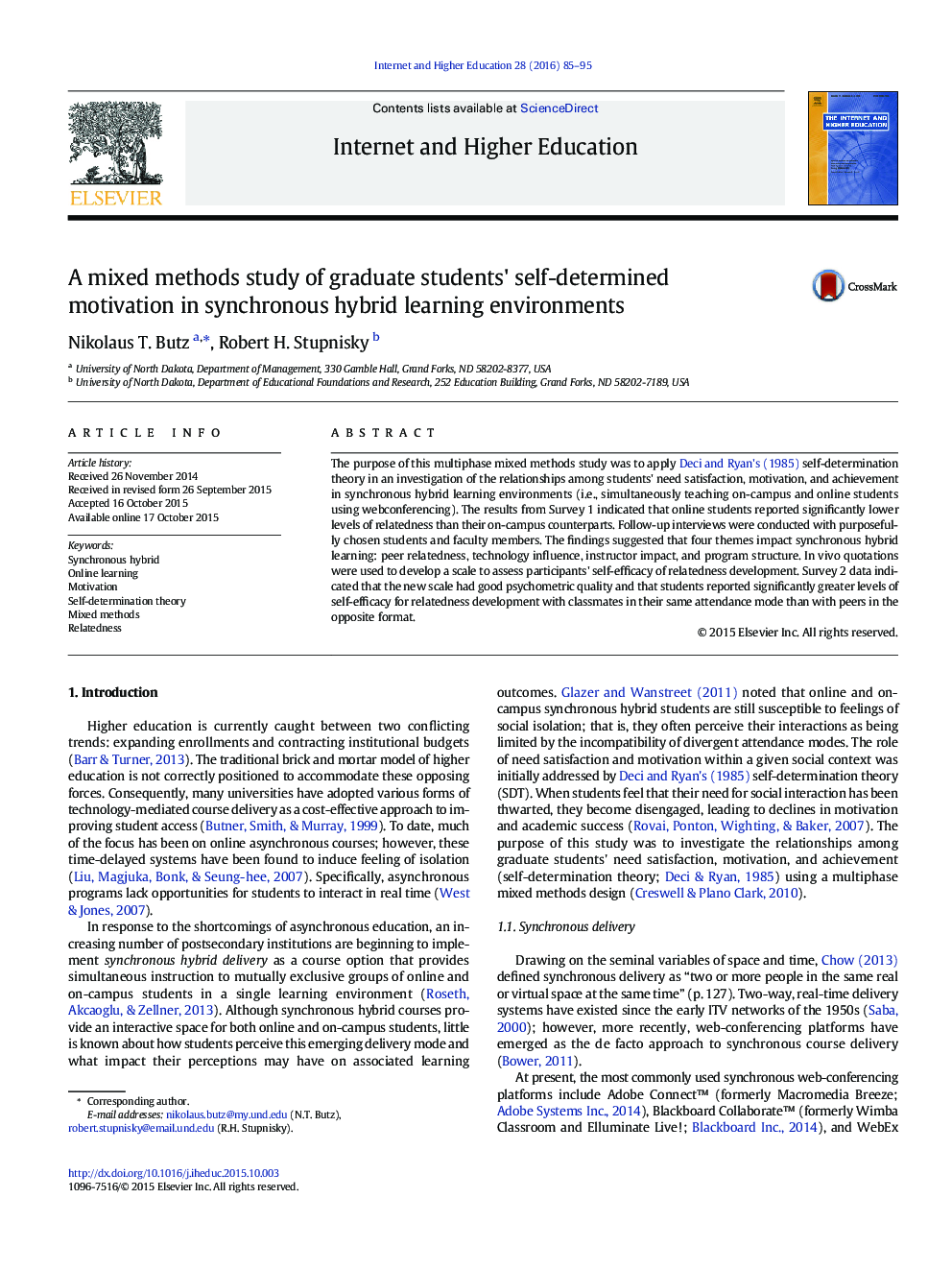| Article ID | Journal | Published Year | Pages | File Type |
|---|---|---|---|---|
| 357705 | The Internet and Higher Education | 2016 | 11 Pages |
•This mixed methods study tested self-determination theory of motivation in hybrid programs.•Online students reported significantly lower levels of relatedness than those on campus.•Qual themes: peer relatedness, technology influence, instructor impact, and program structure•In vivo quotations were used to create a self-efficacy for relatedness development scale.•Students felt more capable of developing relatedness with peers in their same attendance mode.
The purpose of this multiphase mixed methods study was to apply Deci and Ryan's (1985) self-determination theory in an investigation of the relationships among students' need satisfaction, motivation, and achievement in synchronous hybrid learning environments (i.e., simultaneously teaching on-campus and online students using webconferencing). The results from Survey 1 indicated that online students reported significantly lower levels of relatedness than their on-campus counterparts. Follow-up interviews were conducted with purposefully chosen students and faculty members. The findings suggested that four themes impact synchronous hybrid learning: peer relatedness, technology influence, instructor impact, and program structure. In vivo quotations were used to develop a scale to assess participants' self-efficacy of relatedness development. Survey 2 data indicated that the new scale had good psychometric quality and that students reported significantly greater levels of self-efficacy for relatedness development with classmates in their same attendance mode than with peers in the opposite format.
